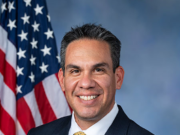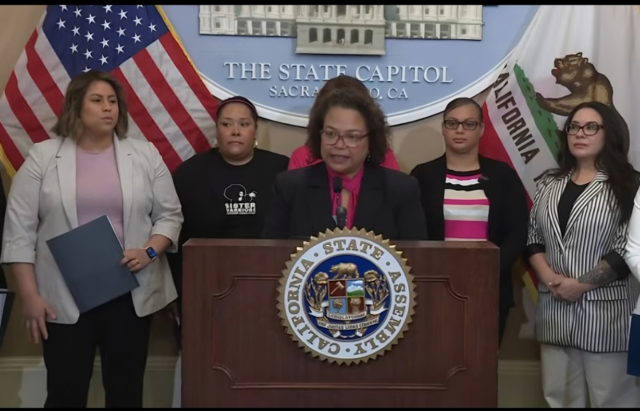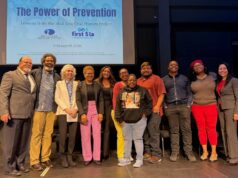By Antonio Ray Harvey | California Black Media
Assemblymembers Mia Bonta (D-Alameda) and Corey Jackson (D-Moreno Valley), members of the California Legislative Black Caucus (CLBC), are celebrating the signing of two of their bills aimed at improving education outcomes — one reforming the student expulsion process, and the other strengthening the state’s early childhood education system.
Gov. Gavin Newsom signed Assembly Bill (AB) 1230, authored by Bonta, on Oct. 3. The new law, known as the Expulsion Rehabilitation Plan Reform, improves the rehabilitation and readmission process for students expelled from schools in California.
Under AB 1230, school districts are now required to help students access the resources necessary to complete their rehabilitation plans and ensure that financial or transportation barriers do not prevent readmission.
“AB 1230 is now law. Together, we’re ensuring students facing expulsion get the individualized support they need to learn, grow, and thrive. Grateful to (Gov. Newsom) for standing with us to fight the ‘school-to-prison pipeline,’” Bonta stated.
The law addresses long-standing shortcomings in California’s expulsion system, where vague rehabilitation plans and procedural barriers often led to prolonged exclusion from school. The measure also limits extensions of expulsion terms to one additional semester at a time.
According to Bonta and other supporters — including the Alameda County Office of Education and the National Center for Youth Law (NCYL) — AB 1230 is part of a broader effort to interrupt the systems that push children from classrooms into incarceration.
Data cited by EdSource shows that more than 4,000 California students were expelled in the 2023–24 school year, with disproportionate impacts on students of color and other vulnerable youth. Although overall suspension rates have dropped over the past decade, 8.6% of Black students were removed from classrooms in 2023–24, compared to 2.7% of White students.
The NCYL also reported that in 2023–24, Black foster youth lost an average of 121.8 days of instruction per 100 students due to out-of-school suspensions — one of the highest rates among all student groups.
“This much-needed reform is about opportunity for students, and will benefit children and youth across the state of California,” said Shakti Belway, Executive Director of NCYL. “Thank you to Assemblymember Bonta and the Alameda County Office of Education for championing students and helping to ensure that they receive the support and tools they need to be successful.”
Gov. Newsom also signed AB 563, authored by Assemblymember Corey Jackson, which enhances the oversight and effectiveness of the Early Childhood Policy Council (ECPC).
The new law requires the ECPC to include specific data analysis and policy recommendations in its annual report to the Legislature. The council, established in 2019, advises on planning, implementation, and evaluation of California’s Master Plan for Early Learning and Care, ensuring equitable access to early education services for diverse populations.
“AB 563 aims to provide actionable recommendations to strengthen California’s early childhood and care system, and it allows for smoother transitions into the K–12 system by adding requirements for the Early Childhood Education Planning Council’s annual report,” Jackson stated.
Members of the ECPC are appointed by the Governor, the Senate, the Assembly, and the State Superintendent of Public Instruction. The council includes representatives from government agencies, childcare providers, advocacy organizations, school districts, and First 5 commissions, as well as a Parent Advisory Committee and a Workforce Advisory Committee.
Jackson says he introduced AB 563 to address fragmentation in California’s early childhood system and ensure that data-driven, actionable solutions are presented to lawmakers. The annual report must now include the system’s successes, challenges, and gaps, along with recommendations to advance the state’s vision for children, families, and communities.
“High-quality early care and education is critical to a child’s development and long-term success. Unfortunately, we have a fragmented early care and education system operating in silos,” Jackson stated in April. “To better serve California’s children, we need a clearer understanding of this diverse system’s needs and must take coordinated action to address them.”


































